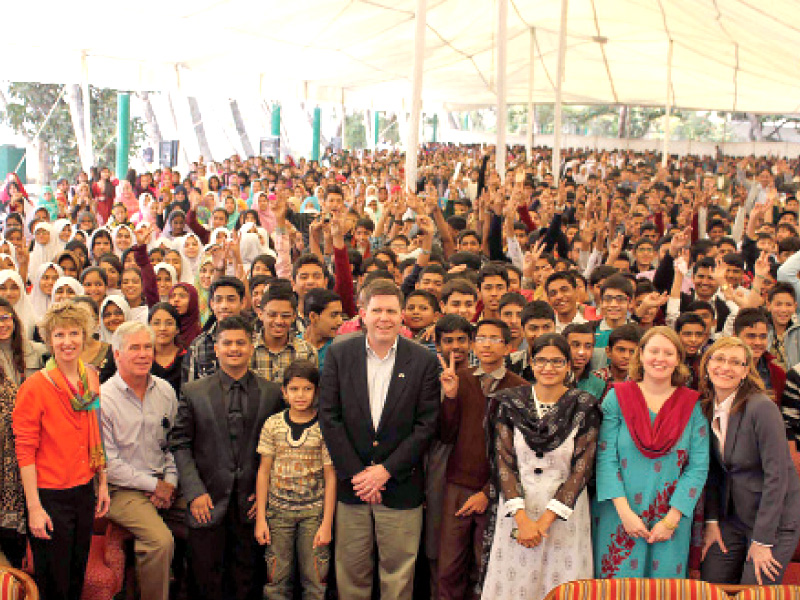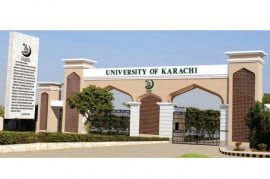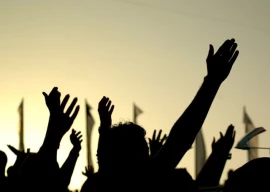
Most people born in a home where English language is spoken frequently might not look it as a privilege but Areez, whose mother finds communicating in English a foreign concept, would beg to differ.
“Every time I speak in English in my house, my mother says ‘chup karo Amreeki bachi’ [be quite American girl],” said a smiling Areez, a student of grade eight. “My mother doesn’t understand these words but I still keep talking to her in English. My teachers say that I should speak the language as much as I can so that I get better at it and feel comfortable in talking to other in English.”
The girl from Orangi Town said that initially, she was too shy to even speak fluently in Urdu. “But the language classes have shaped my spoken skills. Now, I am confident enough to express my thoughts in a more articulate manner.”
Areez was taking two-hour classes thrice a week under the English Access Microscholarship Programme - so was her classmate Quratullain Ansari. Both students belong to the first batch of the programme which started in 2010 and concluded in September 2012.
Ansari, whose father works as a driver in a private bank, said that the weekly classes had totally changed her reading, writing and speaking skills. “The classes are a lot of fun. We are told to speak only in English and even that is fun!” said Ansari.
Changing perception
Sharing her views on the content of books, Shahera Akram from Landhi found “a lot of differences” between Americans and Pakistanis. “I haven’t met any Americans but the reading material makes it clear that they are not shy and express their feelings freely which is not common in our society,” she said. Her class fellows, however, interrupted by saying that the difference lies in “Islamic values” and “their freedom of speech.”

Sughra from Manghopir was pleasantly surprised that the classes were not boring. “Before starting the classes, I thought it would be same boring style that was being taught in my school but I explored a new world in and felt visible changes as the Access programme made me confident,” she said.
Token of appreciation
Hundreds of students from various parts of the city, including Lyari, Ibrahim Hyderi, Hussainabad, Malir, Mehmoodabad and Korangi, attended the award ceremony of the English Access Microscholarship Programme on Saturday.
The Access classes are being organised in 16 different low-income localities of Karachi. The United States embassy with the Society for International Education designed a 410-hour modular language training programme in October 2010, which was launched across the country.
US Consul General Michael Dodman said that the programme can bring positive and healthy changes in the country. “The participants can play a great role in the economy of the country -You [students] and your colleagues are the future of Pakistan.”
Pakistan, at present, has the largest English Access Microscholarship Programme in the world, with over 5,000 students, out of which more than 1,700 students are from Karachi.
Joëlle Uzarski, director at the US State Department’s Regional English Language Office for Pakistan said “It is not only for English language but also helps build their confidence and leadership qualities.”
Published in The Express Tribune, January 20th, 2013.
COMMENTS (3)
Comments are moderated and generally will be posted if they are on-topic and not abusive.
For more information, please see our Comments FAQ

















It's good to know English as a secondary language but giving English more emphasis than Urdu is dangerous for our basic Pakistani Urdu identity, being multilingual is a great achievement but forgetting our mother tongue is a greater loss than knowing English.
After all our mothers are not englishman !!!!!
This is a good thing in pakistan. Now a days speaking in English is very essential. in gujranwala there is a big problem including me, everyone feels hesitation for speaking in English, and also there is lack of bundle of words that is helpful for speaking english.0